Heart pounding, I startle awake at 4 am. I am panic-stricken and consumed with terror.
My bedroom is quiet. There are no intruders, only my faithful furry friend Winston, slumbering quietly at my feet.
I wonder if I had screamed and scared any of my children.
For 5 minutes, then 10 minutes my heart continues to pound as I lie, terrified in my darkened room. I try to decide if I should call an ambulance… perhaps I’m having a heart attack.
I am both afraid and confused. I know that I am safe in my room, that there is no immediate threat, but my body and emotions are hijacked, and without my consent I find myself immersed in past horrifying events.
I am forced to wait it out.
Thankfully I do know now, from more than 5 years of experience, that a panic attack will eventually pass.
It feels like it’s going to kill me, but it won’t.
I have PTSD and Complex PTSD (CPTSD).
While PTSD is typically the result of a specific, horrifying event, Complex PTSD is the consequence of numerous traumatic events, over a longer period of time. CPTSD is frequently caused by childhood abuse and neglect or, in my case, being trapped for many, many years in a very abusive marriage.
Complex PTSD and PTSD share symptoms, but there are some symptoms unique to CPTSD. If you are interested in a somewhat detailed list of symptoms for both PTSD and CPTSD, you can scroll to end of this post.
I have had the hardest time coming to grips with the fact that I have both PTSD and CPTSD, even after repeated official diagnoses.
When I look objectively at the symptoms of PTSD and Complex PTSD, I can check off 99% of them (anger isn’t a symptom for me) but still I try to live in denial that I have CPTSD… until I am triggered and panic so badly that I am struggling to speak or I have a terrifying middle-of-the-night panic attack.
Why I’m Writing This
When I first escaped my 27-year long abusive marriage I found myself unexpectedly blindsided by the overwhelming symptoms of PTSD and CPTSD. I spent a lot of time searching for information, resources and hope online. I had no idea that I could end up with PTSD after being trapped in an abusive marriage. I was afraid that I was going crazy.
I am going to share some details of my struggle with PTSD/CPTSD, not so that you can compare your situation to mine ~ there will always be someone who has lived through more horrific trauma than me, and those who have lived through less extreme situations and everyone’s reaction is different. Please own your own story.
Imagine that you knew someone who had cancer… you would be horrified if they told you, “Yeah, I’ve got cancer, but look at this person! They’ve got a different, scarier type of cancer. I don’t know why I’m struggling so much!” No! You’d almost certainly remind them that cancer is awful. Period. It doesn’t matter what type of cancer you have.
It’s the same with the fallout from abuse. No matter what the details of your story are, if what I’m writing resonates with you, then please offer yourself compassion, not comparison.
I am writing with transparency here to provide information and hope for others.
I am writing to let you know that you are not alone…. or crazy.
I am writing to remind you that God can redeem even disastrous situations.
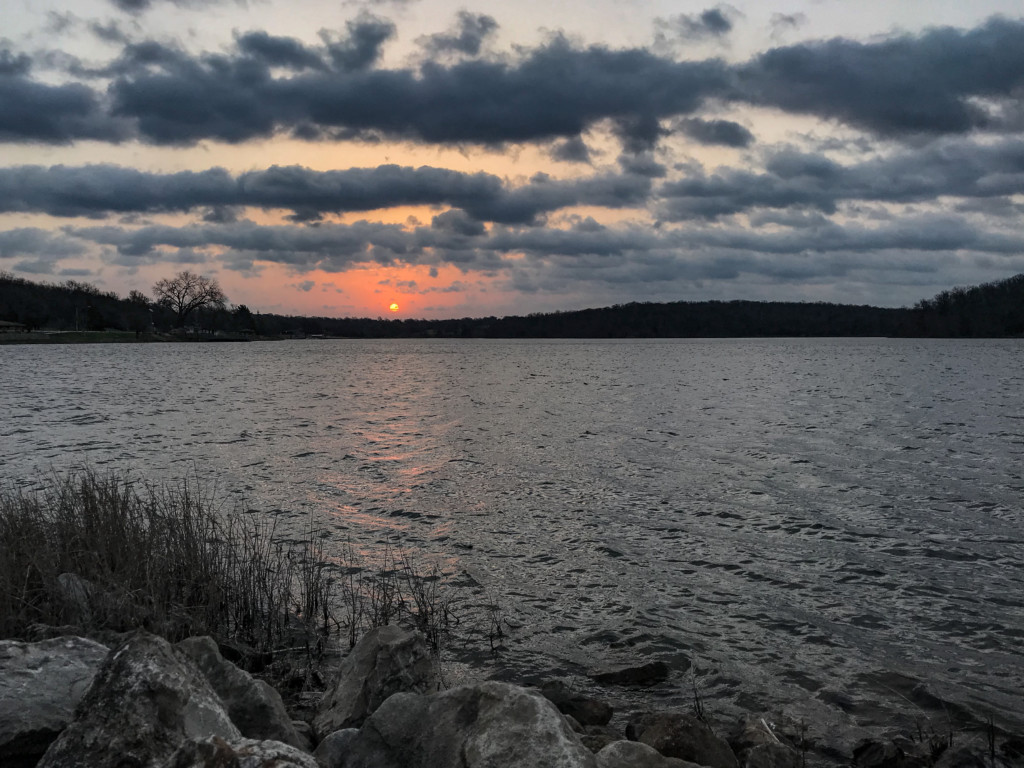
This is what my PTSD/CPTSD looks like
Every morning I wake up and begin my day with limited emotional energy. (Perhaps you have read about the “spoons theory?” I start my day with fewer “spoons”)
My children are my priority so I do everything I can to work around my limitations with PTSD to be available for them.
I carefully plan my schedule to avoid crowds when I have to shop.
I can make myself to go to one of my boys’ sporting events or a band concert, but I attend knowing that I am likely to panic and have to leave early.
One crowded, overwhelming event can sideline me for several days afterwards, so I choose my activities carefully, mindful of the probable fallout.
Still, 5 1/2 years after escaping my abusive marriage, I have nightmares and panic attacks, on almost a daily basis.
I have huge gaps in my memories of the 27 years I was married.
I avoid eating out.
I avoid places where “bad” things happened to me in the past.
I haven’t been able to sit through a whole church service in several years, partially due to the spiritual abuse that we all were subjected to.
CPTSD is basically an emotional injury ~ an invisible illness. Since it isn’t as tangible as a broken bone I frequently have to remind myself that living so much of my life on “high alert” and in “panic mode” is both emotionally and physically exhausting. I am learning to be compassionate with myself.
For me, being triggered causes a level of overwhelm that is very difficult to describe. PTSD research has shown that when someone with PTSD is triggered and panics, the right half of the brain “takes over” and the logical, thinking left side of the brain is sometimes almost totally “shut down.” When this happens to me it becomes almost impossible for me to speak and I can’t think. All I am aware of is the panic and a desperate need to escape.
The best analogy I’ve come up with for explaining what it’s like to be triggered is this: I often walk and ride my bike on a trail that parallels two sets of busy railroad tracks. When a train passes while I am on the trail, the noise is so loud that I am consumed by it. If I were walking with someone else, we would have to stop talking until the train passed because there would be no way to hear each other over the noise of the train. For the minutes that the train is roaring past, there is only train. I am totally consumed by the noise and vibrations of the passing train.
Being triggered is like that train. I don’t usually know in advance what will trigger me and when it happens, I’m totally overwhelmed and consumed by the panic of past events.
I can’t reason my way out of it, any more than I can order the passing train to stop.
We each have a unique story and recovery timeline
Please don’t compare your story to mine and be discouraged that I am still struggling this much, 5 1/2 years out. I’ve been told repeatedly that in many ways my situation was (and continues to be) somewhat extreme and unique.
- I was tremendously isolated for 26 years
- I was pregnant 14 times (I had two miscarriages), had 12 children (including one very early preemie) ~ *please know this: as challenging as a large family is, I wouldn’t change a thing about the size of my family though.
- the nature of my abuse was not only all-encompassing (emotional, physical, sexual, psychological and spiritual) but extremely insidious as well, which left me constantly questioning my perception of reality.
- When I first left my abusive husband, I still had 10 children living at home with me.
- 6 of my 12 children have been diagnosed with serious anxiety disorders, fallout from so many years of abuse by their father. I have spent a huge amount of time and energy the past 5 years trying to obtain help for them.
- One of my boys almost died in a suicide attempt last fall. Thankfully he is recovering, but that has been horrifically stressful in ways that I can’t even begin to articulate here.
I don’t say this to point out how terrible my unique situation is, but rather to offer hope and encouragement and suggest that you give yourself grace as you recover.
Your timeline for recovery will be as unique as your story.
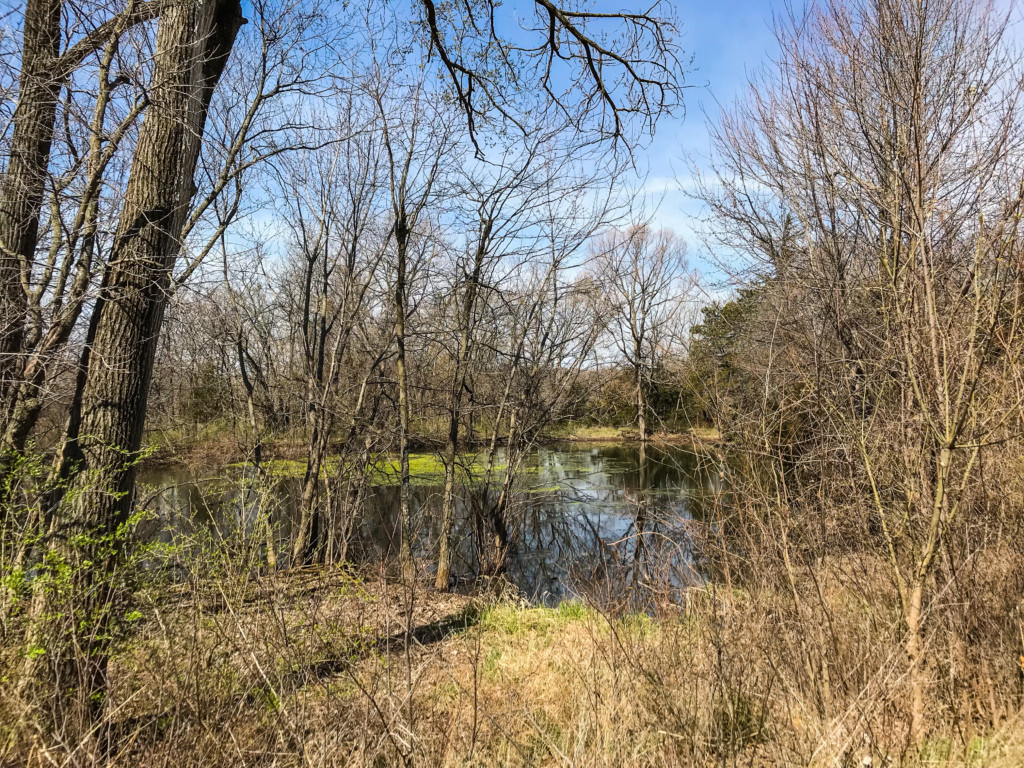
Ways I’m Improving
There’s no way around it: PTSD sucks.
There are ways that I have improved in the past 5 years though.
I can now write here on my blog, addressing some challenging topics (I do so want to encourage others!).
I can make art again. In the past I loved to create… sewing, drawing, painting and photography. For almost 5 years after escaping my abusive marriage, I was struggling too much to enjoy any of those activities. Now, 5 years later, when I was about to lose hope of ever enjoying those creative parts of myself, here I am, writing and making art again.
I don’t think that I’m triggered less often now but I’m getting better at identifying when I’m triggered and it doesn’t “freak me out” as badly when I am. Since I am more adept at identifying when I’m triggered, I am able to take care of myself by retreating from overwhelming situations more quickly to rest and regroup.
Hope in the midst of the mess
As horrible as CPTSD is, I want you to know this: there is still joy in the midst of the struggle.
I still laugh with my children. We have so much fun together. My boys love to make me laugh… it’s become a bit of a competition between them to see who can show me the funniest memes each day.
I have even come to find some humor in some of my weird panicky reactions to things (after the fact).
I have been blessed with an Australian Labradoodle, which I am training to be a service dog for me. He brings all of us so much joy.
Truthfully, I am not sure that I’ll ever totally “conquer” CPTSD but I am learning to manage it.
As with other hard things in my life, this too provides a perfect backdrop to highlight God’s faithfulness.
I am gradually learning contentment in the midst of my struggles. By that, I don’t mean that I’m “giving up” and saying “Ah well, it is what it is!”
Instead I’m actively working to learn new ways to heal and better manage the symptoms of PTSD while I embrace my weakness and struggles.
My brokenness allows me to experience God’s faithfulness in deep ways that I otherwise wouldn’t have.
My struggles and pain also give me opportunities to encourage others as I share stories of His faithfulness with others.
God is faithful in the very midst of my struggles, not only if He chooses to remove them.
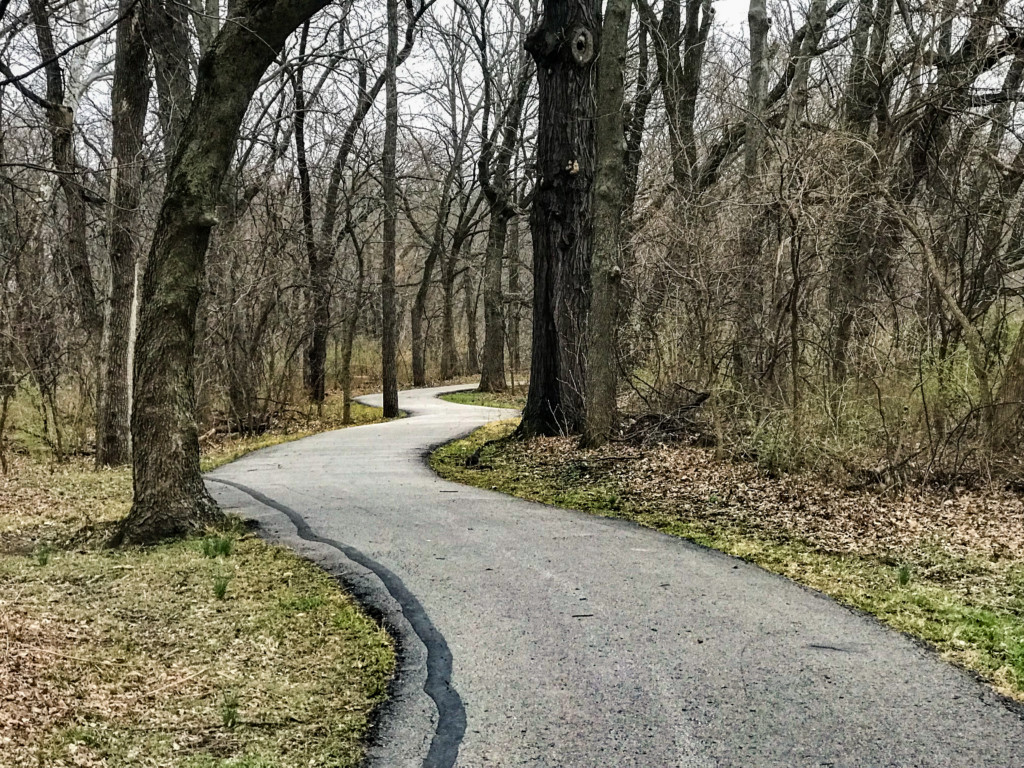
Recovery
Many people do recover from PTSD and even CPTSD. There are numerous healing resources to explore.
At this point I do not consider myself to be “healed” from CPTSD or PTSD, but I am learning ways to manage the symptoms. This creates enough margin in my life for me to function and be available for my children.
Additionally, over the past 5 1/2 years, I have had enough panic attacks and severely triggered episodes that I am not totally blindsided by them. I have past experience to draw from, with the knowledge that while they are horrible when I am in the midst of them, they do eventually pass.
In the future I might share some specific things that have helped me but the reality is that what works for one person will not be a guaranteed cure for another.

Be kind to yourself
Perhaps you are also in the thick of PTSD or CPTSD.
If I could share one thing with you it would be this: please be gentle with yourself.
I am confident that the Lord is mindful that we are but dust. (every time I type “but dust” I remember the story of the little boy in church who, after hearing the pastor say that phrase, whispered to his mom, “What’s butt dust?” lol).
Reminding myself of God’s compassion towards my frailty encourages me.
As much as our Western society like to promote “fake it till you make it,” “pull yourself by your bootstraps,” “just do it” and other similar mantras, the fact is that we are weak.
It is in our weakness that Christ is strong. I am learning to embrace my weaknesses and rely instead on Christ’s strength and compassion for me, even when I’m not “strong.”
Your struggles are not evidence that the Lord is upset with you, or that you are not trying hard enough.
Your struggles are evidence that you are human.
Your struggles also prove the extreme nature of the traumas you have had to live through.
Please be ever so kind to yourself.
Philip Monroe’s perspective on recovery from trauma is excellent:
Recovery and renewal during and after trauma likely will not eliminate the consequences of violence until the final return of Jesus Christ. Despite our call to heal the broken and free those enslaved, we are given no promise that the consequences of violence are fully removed until the final judgment. Rarely do we expect lost limbs to grow back or traumatic brain injuries to be erased upon recovery from an accident.Yet sometimes we assume that traumatic reactions such as startle responses, flashbacks, or overwhelming panic should evaporate if the person has recovered. A robust theology of trauma recognizes we have no promise of recovery in this life. What we do have is theology of presence. God is with us and will strengthen us, guiding us to serve him and participate in his mission to glory. -Philip Monroe
A “theology of presence.” I love that. What more could I need?
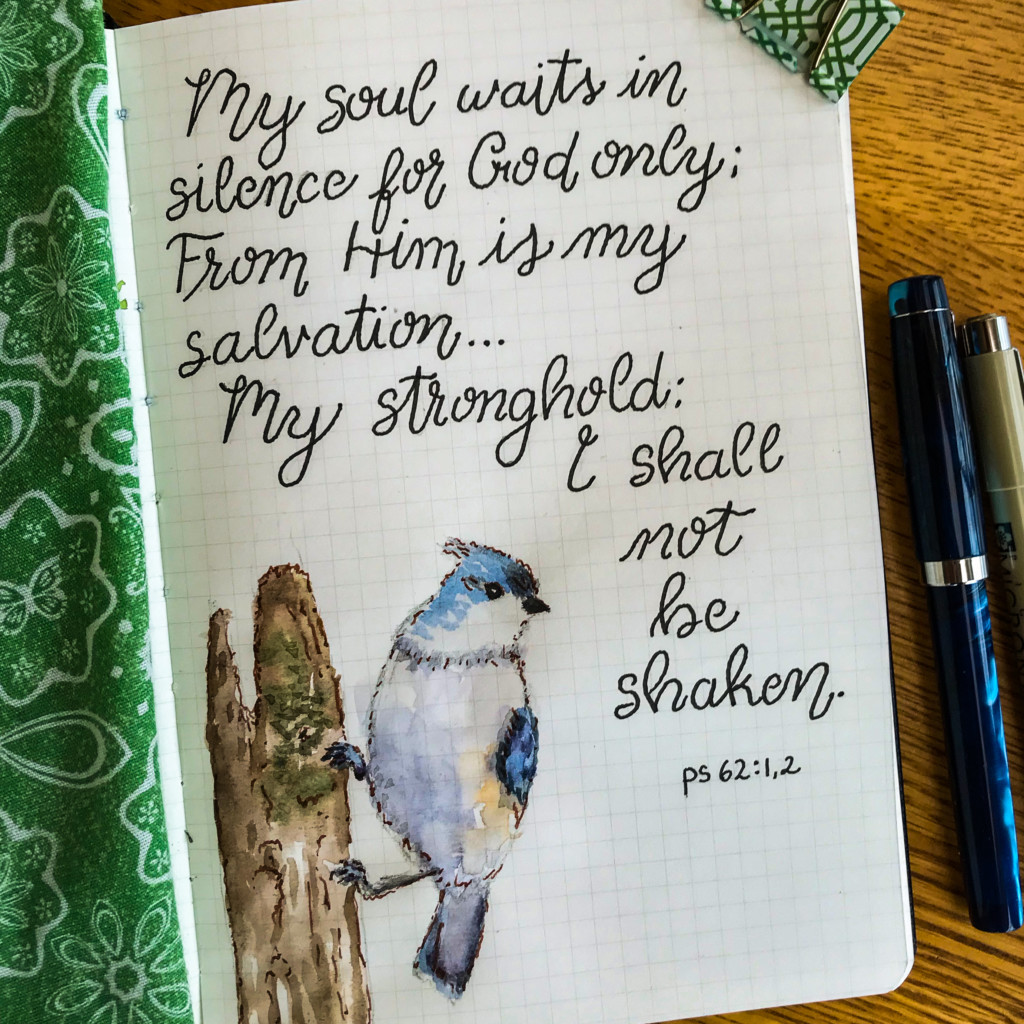
Hope for Moving Forward
My desire in writing this article is to provide information for those who find themselves dealing with PTSD or Complex-PTSD as well as for those who are supporting someone with PTSD or CPTSD.
Here is the most hopeful thing: Christ’s presence in the thick of CPTSD symptoms.


If you would like to sign up for my newsletter, please use the form on this page, to the right of this post, if you are using a computer, and below the post if you are on mobile. Or you can go here to sign up.
Resources
PTSD Symptoms:
*these lists are compiled from several websites, cited below.
Recurrent re-experiencing or Reliving of the Trauma:
- Troublesome memories of associated events and people
- Flashbacks
- Recurring nightmares
Chronic Physiological signs of hyper-arousal:
- sleep problems
- trouble concentrating
- irritability
- difficulty remembering things
- exaggerated startle reflex
- hyper-vigilance
Problems Regulating Feelings:
- Trouble regulating strong emotions
- Suicidal thoughts
- Ongoing sense of helplessness, hopelessness, loss and/or despair
- Persistent feelings of shame or guilt
- Feelings of being completely different than others
- feeling of detachment
Avoidance of anything related to the trauma:
- fear of associated places and people
- reluctance to talk about the event(s)
- fear of situations that may trigger related memories
- distress when exposed to triggers
- avoidance of thoughts, feelings and places associated with the trauma
Persistent Feelings that the cause of the trauma is all-powerful
Noticeable decrease in doing things that give the sufferer’s life meaning:
- failure to engage in previously enjoyed past-times, hobbies, etc.
Complex PTSD Symptoms:
Pete Walker, in Complex PTSD: From Surviving to Thriving summarizes Complex PTSD this way:
CPTSD is a more severe form of Post-traumatic stress disorder. It is delineated from this better known trauma syndrome by five of its most common and troublesome features: emotional flashbacks, toxic shame, self-abandonment, a vicious inner critic and social anxiety.
Signs of Complex PTSD
- CPTSD emotional flashbacks do not typically have a visual component. Emotional flashbacks are sudden and often prolonged regressions to the overwhelming feelings of past abuse/abandonment.
- Fatigue with symptoms of or similar to Chronic Fatigue Syndrome
- Numbness, both physical (toes, fingertips, and lips) and emotional (inability to feel love and joy)
- Clumsiness
- Hyperawareness and an acute sense of time passing, seasons changing, and distances travelled
- Feelings of worthlessness, rejection, a sense of being unwanted, unlikeable and unlovable
- An overwhelming sense of betrayal, and a consequent inability and unwillingness to trust anyone, even those close to you
- In contrast to the chronic fatigue, depression etc, occasional false dawns with sudden bursts of energy accompanied by a feeling of “I’m better!”, only to be followed by a full resurgence of symptoms a day or two later
- Social isolation, avoidance of relationships
- night terrors, chronic insomnia
- Variations in consciousness, including forgetting traumatic events (i.e.,psychogenic amnesia), reliving experiences (either in the form of intrusive PTSD symptoms or in ruminative preoccupation), or having episodes of dissociation.
- explosive or extremely inhibited anger (may alternate)
- Changes in self-perception, such as a chronic and pervasive sense of helplessness, paralysis of initiative, shame, guilt, self-blame, a sense of defilement or stigma, and a sense of being completely different from other human beings
- Varied changes in the perception of the perpetrator, such as attributing total power to the perpetrator, becoming preoccupied with the relationship to the perpetrator
- Alterations in relations with others, including isolation and withdrawal, persistent distrust
- Loss of, or changes in, one’s system of meanings, which may include a loss of sustaining faith or a sense of hopelessness and despair
article/book links
(*please note that some links are affiliate, meaning if you click through and purchase, I receive a small commission, at no extra charge to you)
Complex PTSD: From Surviving to Thriving by Pete Walker. This book is highly recommended.
The Body Keeps the Score: Brain, Mind and Body in the Healing of Trauma by Bessel van der Kolk, M. D.
Trauma and Recovery: The Aftermath of Violence — From Domestic Abuse to Political Terror by Judith Herman A classic on the topic of CPTSD
This article gives a good description of CPTSD.
Out of the Fog‘s description of CPTSD is very thorough.
PTSD Symptoms and Signs of PTSD
Symptoms of PTSD from a UK website on bullying
Complex PTSD Symptoms and Treatment
*My lists of PTSD and CPTSD symptoms were gleaned from several of the websites linked above.



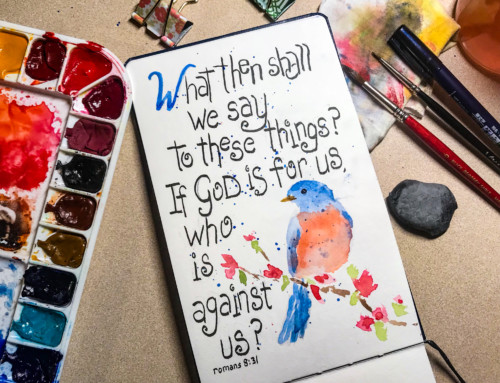


Thank you for sharing you have been transparent and helpful. You are a blessings.
Mark
This list is so helpful. I loved to create as well- quilts, photo albums, and painting, but since escaping my abusive 20 year marriage I haven’t been able to create. It’s been 1 1/2 years since I left so hopefully it will come back. I also see that my abusive spouse has a lot of the PTSD and CPTSD symptoms that were brought on by growing up in an abusive home. He has chosen not to heal. I’m sad for him but all the more determined for my and my children’s sake to heal. Thank you for sharing your journey.
Thank you so much for sharing. You are an amazing human being. I am finally deciding to look at my past and my life and this is making a lot of sense and explaining exactly how I feel and my emotional outbursts. You give me hope.